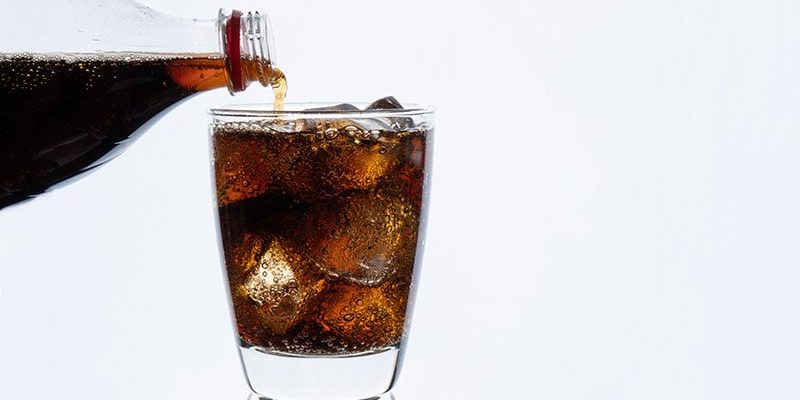Whether lemonade, cola, or another kind of soda, soft drinks are considered drivers for obesity and diabetes. Nevertheless, little progress is being made in reducing sugar in soft drinks. From 2015 to 2021, their sugar content fell by just 2%. This change is shown by the results of a study by the German Alliance of Non-Communicable Diseases (DANK) in collaboration with scientists from the Ludwig Maximilian University (LMU) of Munich, Munich, Germany, and the Technical University of Munich, Munich, Germany, which was recently published in the Annals of Nutrition and Metabolism.
The German Federal Ministry of Food and Agriculture’s (BMEL) national reduction strategy stipulates that the sugar content of soft drinks should decrease voluntarily by 15% from 2015 to 2025. However, the study results show that manufacturers are still falling significantly short of this target. Theoretically, sugar content should have decreased by 9% between 2015 and 2021 to stay on track.
“If the current trend continues, it will take decades before the target of 15% less sugar is achieved,” said Oliver Huizinga, coauthor of the study and political director of the German Obesity Society, in a statement by the DANK. “We do not have that much time,” he added.
Burkhard Rodeck, MD, general secretary of the German Society for Pediatric and Adolescent Medicine (DGKJ), which cofinanced the study, said, “The manufacturers’ voluntary commitment will almost certainly not be enough.”
Industry Levy
According to the study, in 2015 the average sugar content of soft drinks in Germany was 5.3 g per 100 mL. In 2021, it was 5.2 g per 100 mL. By way of comparison, in the same period in the United Kingdom, the sugar content fell from 5.3 g per 100 mL to 3.8 g per 100 mL. For this study, the authors evaluated data from the market research institute Euromonitor International, a market research leader for consumer markets.
“Our data do not just show a slow rate reduction in Germany, they also show how it could be different. In the UK, the sugar content has fallen by almost 30% in the same timeframe, with similar baseline values,” said Peter von Philipsborn, MD, MSc, main author of the study and chair for Public Health and Health Services Research at LMU.
“In 2018, the UK introduced an industry levy on soft drinks to encourage the manufacturers to reduce sugar. This approach has proven highly effective,” said Philipsborn. The national reduction strategy introduced in 2018 by the former Federal Minister of Food, Julia Klöckner, is exclusively voluntary.
In June 2021, in view of the strong increase in childhood health issues, the DGKJ, the Professional Association of Pediatric Physicians, and the German Society for Social Pediatrics and Adolescent Medicine reaffirmed their demand for a sugar tax. At the time, there was an expected timescale of 1 to 2 years, said Rodeck. If sufficient improvement had not been achieved in this time through voluntary reduction strategies, regulatory measures were meant to be introduced, such as increased value-added tax on drinks containing a high amount of sugar.
Obesity and Diabetes
“Sugary drinks are seen as major drivers for obesity and diabetes,” said Barbara Bitzer, spokesperson of DANK and manager of the German Diabetes Society. “Appeals to the industry are not enough. The government must eventually take effective measures to significantly reduce the sugar content in soft drinks,” she insisted.
Nonbinding political appeals to manufacturers will not have any relevant effect, said the Association of Diabetes Advice and Training Professions in Germany (VDBD). It is therefore high time for binding preventive measures to encourage healthy nutrition and reduce economic costs.
“If we continue to limit ourselves to appeals that then fizzle out without any effect, it will take many years until we are able to reach the Federal Ministry’s target levels — or maybe they will never be reached,” said Gottlobe Fabisch, PhD, managing director of the VDBD. “However, the health of all of us must take precedence over manufacturers’ profit aspirations. Politicians must finally take effective action to start reducing sugar in soft drinks.”
Nicola Haller, PhD, chair of the VDBD, called for politicians to make sensible specifications for the alternative ingredients in soft drinks. “Manufacturers should not be allowed simply to replace sugar with sweeteners that continue to train our sweet tooth,” said Haller. Initial studies suggested that sweeteners affect the metabolism, which in the worst case could also lead to insulin resistance.
A Cochrane Review
Federal Minister of Food Cem Özdemir would be well advised not to continue his predecessor’s strategy, said Huizinga. However, the national reduction strategy is not in question, at least at the moment. The BMEL will “very carefully check all of the scientifically founded investigations on the development of the sugar content in soft drinks and draw the required conclusions.”
“Based on the scientific evidence with regard to the health effects of sugar intake via sugary drinks, this group of products is of particular importance within the context of the national reduction strategy,” a BMEL spokesperson told Medscape. The BMEL classifies the scientific evidence that introducing a sugar tax will reduce consumers’ sugar and total calorie intake as “still insufficient.”
“We are expecting substantiated information about the effects of a sugar tax to be published in a comprehensive review study in the Cochrane Database of Systematic Reviews later this year. We will include this scientific foundation in our positioning,” said the BMEL spokesperson. However, fiscal measures within the German federal government are the responsibility of the Federal Ministry of Finance.
In the meantime, more than 50 governments worldwide have introduced a levy or tax on sugary drinks. Medical associations such as the World Health Organization, consumer advocates, and health insurance companies have recommended introducing such a regulation in Germany for years.
This article was translated from Medscape’s German edition.
Source: Read Full Article
